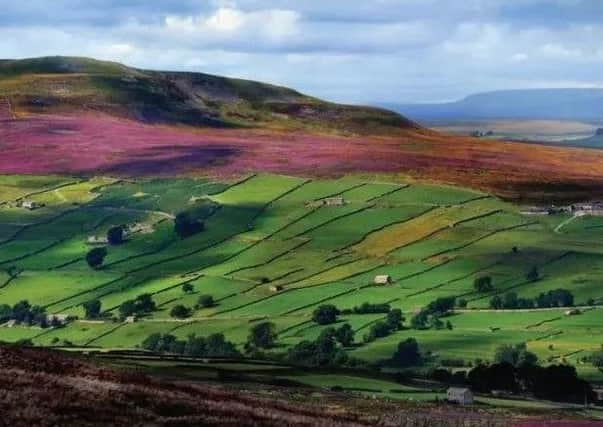Thousands of jobs dependent on future farm support payments, study finds


Researchers found that leaving the EU’s Common Agricultural Policy (CAP) in 2019 and not replacing it with a national policy, would result in a 1.6 per cent fall in employment in non-farm small and medium-sized businesses in the UK.
Both the direct and indirect effects of farmers’ purchasing power was taken into account in the study by the universities of Lincoln and Kent, which concluded that the negative impact on the rural job market “might be very significant”.
Advertisement
Hide AdAdvertisement
Hide AdCurrently, UK farmers receive £2.9bn via the CAP, which represents 73 per cent of the nation’s total farm income. Direct support payments account for almost four-fifths of that figure with the rest - some £700m - specifically allocated to farmers for making environmental improvements.
That income is vital, the study finds, as estimates show that less than half of all UK farms cover their input costs with returns from the open market.
Dr Alastair Bailey, co-author of an agriculture briefing based on the research findings from the National Institute of Economic and Social Research, said: “While it is true that the EU CAP payment represent a very large budgetary cost and that a large share of that are received by a small number of more wealthy farmers, there are many farmers, particularly in the parts of the territory where farming is hard, who rely heavily on the CAP for survival.
“Since Brexit will result in the removal of CAP in its current form, the UK has the opportunity to design a replacement subsidy programme which targets need and helps to boost the rural and urban economic linkages.”
Advertisement
Hide AdAdvertisement
Hide AdIt is unclear what kind of national farming policy that Britain will adopt for when it leaves the EU but various pledges have been made by political parties in their General Election manifestos.
The Tories say farm payments will be guaranteed until the end of the next parliament in 2022, while Labour says it will “reconfigure” funds for farming to support smaller traders, local economies, community benefits and sustainable practices.
The Lib Dems vow to reform support by refocusing it towards public benefits derived from effective land management; UKIP says it would create a UK Single Farm Payment that would better support smaller farms, and the Greens pledge more sustainable farming policies aimed at restoring the natural environment.
Dorothy Fairburn, regional director of the Country Land and Business Association (CLA), which represents rural businesses in England and Wales, said it was “essential” that farming support continued beyond Brexit although the criteria for payments could be “redefined” to deliver better outcomes for the rural economy and the environment.
Advertisement
Hide AdAdvertisement
Hide AdMiss Fairburn said: “Seventy per cent of our landscapes are managed and maintained by farmers, and it would be good to see some support for this.
“Funding support could possibly be re-cast in a different shape which would see farmers and landowners supported for ‘public goods’ such as flood protection work, water quality, enhancing wildlife and maintaining our natural landscape’s features.”